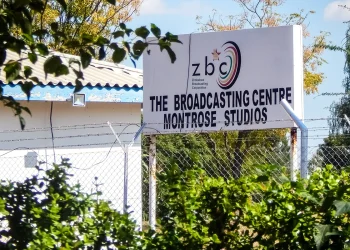Okra was one of Nigeria’s most exciting fintech bets. It promised secure open banking APIs, signed big enterprise names, and was reported to have attracted more than sixteen million dollars in venture funding. Yet public filings confirm only two rounds: a one million dollar pre seed in 2020 and a three point five million dollar seed in 2021. Everything beyond that remains unverified.
Co-founder Fara Ashiru Jituboh has since left the company; she is now Head of Engineering at UK startup Kernel, while Okra itself has quietly wound down. Much will be said about where the extra money went, but until the founders or their backers provide a full accounting we can only speculate. TechSoma is speaking with former team members and investors, and when our investigation is complete we will publish the story in full.
However, this piece is not that exposé. It is a practical guide for founders who have finally closed a round and wonder, “After years of living on Indomie and borrowing from friends to cover payroll, can I take a little cash off the table?” The answer is yes, if you do it transparently, document every naira from day zero, and stay within the boundaries investors expect.
Six Practical Paths to Founder Liquidity
- Draw a market-rate salary
Secure board approval before the round closes. Pay yourself an amount that matches chief executives at similar stage companies. Increase it only after hitting milestones everyone agreed on. - Earn milestone based bonuses
Link cash awards to specific achievements such as annual recurring revenue targets, key regulatory licences, or major enterprise contracts. Put each trigger condition in the board minutes and release funds only after the finance lead verifies the goal. - Sell a limited block of personal shares
In an oversubscribed round, new or existing investors may buy ten to fifteen percent of your common stock at the same price they pay for preferred shares. You gain liquidity without touching company funds and still keep a strong ownership position. File the transfer paperwork, update the cap table, and disclose the sale in the next investor update. - Provide a formal loan to the company
If you advance personal money for payroll or urgent vendor bills, draft a short agreement that states the principal, interest rate, and repayment schedule. Have the board sign off, record the loan in the ledger, and repay it only when runway is comfortably above plan. - License intellectual property at arm’s length
When your holding company owns software, patents, or brand assets, license those assets back to the startup at a price supported by an independent valuation. Show the arrangement in the profit and loss statement, include it in annual audits, and review the rate every year to avoid conflicts of interest. - Declare dividends only after profitability
Cash distributions are rare before a Series B round, but they can work when the company generates real surplus and the preference stack allows payouts. Obtain unanimous consent from preferred shareholders, confirm that runway stretches well past eighteen months, calculate the tax impact in advance, and document every step in the statutory accounts.
By following these methods, each one properly documented, approved by the board, and aligned with tax requirements, founders can secure personal liquidity without jeopardising company runway or investor confidence.
Practical Dos and Don’ts for Founder Liquidity
Dos
- Document every naira or dollar from the first day the company exists. Keep digital copies of taxi receipts, cloud-hosting invoices, and even that late-night Indomie run for the engineering team. Larger cash injections should be recorded as board-approved loans or convertible notes so the paper trail is complete and auditable.
- Treat any personal cash you advance to cover staff salaries or urgent vendor bills as a formal loan to the company. Write a one-page note that states the amount, the date, a reasonable interest rate, and a repayment timetable, then add it to the board pack and the accounting file.
- Lock your salary, milestone bonuses, and any planned secondary share sales into the term-sheet or the first post-round board deck. Investors value clear expectations and dislike surprises that appear after the funds hit the corporate account.
- Reserve money for tax the moment you take it. Salary will be taxed as ordinary income, proceeds from a secondary sale are capital gains, and founder loans may attract imputed-interest rules. Engage a trusted accountant early; the fee is far cheaper than a tax investigation.
- Send a concise liquidity update to your board every quarter. A two-paragraph note that confirms runway, founder compensation, and any personal loans repaid keeps everyone aligned and protects you from future misunderstandings.
- Maintain a personal emergency fund outside the company. A modest buffer lets you resist dipping into corporate cash when a family crisis or medical bill appears, preserving both runway and investor confidence.
Don’ts
- Do not shorten runway below eighteen months to extract personal cash. Venture investors will veto any payout that threatens payroll or core milestones, and the signal to future backers is disastrous.
- Do not treat the company account as an automated teller machine. Every transfer to your personal account must carry a board resolution, a clear justification, and a matching entry in the books.
- Do not oversell your equity before the product has achieved market fit. Future investors study founder ownership closely; if you exit too much too early they will question your commitment to the long-term vision.
- Do not blur personal and corporate expenses. Mixing grocery bills or rent with company credit transfers invites tax penalties and erodes investor trust faster than missed KPIs.
- Do not conceal founder loans. Quietly wiring money in and out without documentation undermines your CFO, confuses auditors, and weakens the valuation story at the next round.
- Do not ignore professional advice. Legal counsel and accountants exist to navigate compensation, securities regulations, and tax. Skipping their guidance saves a few naira today but may cost the entire company tomorrow.
Most Importantly;
Capital raised belongs to the company first. Founders deserve to clear personal debts and move beyond instant noodles, but the responsible route is a modest salary plus limited, transparent liquidity once the round closes. Keep immaculate records, follow the rules, and you will never have to explain away missing millions when the spotlight turns your way.
This article was rewritten with the aid of AI
At Techsoma, we embrace AI and understand our role in providing context, driving narrative and changing culture.















Comments 1